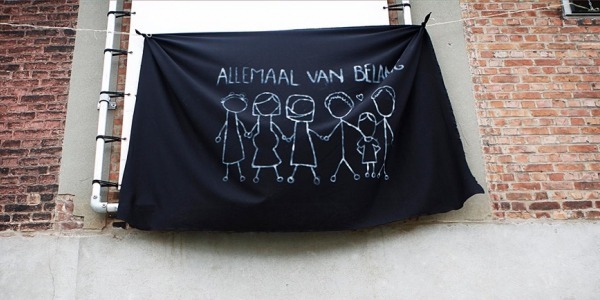After the Belgian elections on Sunday, people are taking to Twitter to share their personal stories about discrimination and racism, using the hashtag #allemaalvanbelang.
The hashtag translates roughly as 'everyone is important' and is a Dutch play on words on the name of the Flemish far-right party Vlaams Belang.
Many people are voicing their displeasure about Sunday's election results, in which Vlaams Belang became Flanders' second biggest party, and their worries about the normalisation of racism in society.
"The fact that the hashtag was picked up so quickly by people with a migration background shows how necessary it is to talk about this," said Mayada Srouji, one of the initiators. "We did not think the action would do much. This is extremely important to us, so that people no longer remain passive when they see racism, but also intervene in it," she added.
The initiators were particularly concerned about the possible impact of the elections on the normalisation of racism. "On the one hand, there are people who minimise the impact of the election results, on the other hand, there are people with a migrant background who try to shout that racism does indeed happen continuously." A lot of support for that message came immediately on Twitter.
In addition to the stories of people with a migrant background, a lot of native Belgians responded, and some even tried to highjack the hashtag with racist tweets. "It shows that there are different realities in Flanders. The line that divides us probably lies not so much between immigrant and native, but between urban and rural," said Nadia Fadil, an anthropologist at KU Leuven. "It has to do with the degree to which we come into contact with each other," she added.
Fadil also emphasises that a different discourse and more understanding are the solutions to the social conflict. "There are many more dividing lines that we do not see. We are 'doomed' to find solutions together while trying to convince ourselves that we can still do it alone," she said.
Maïthé Chini
The Brussels Times

